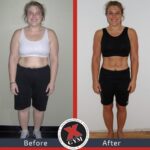Inspired by a recent review done by Timothy Noakes, an exercise physiologist out of South Africa, I will be discussing what is to me at least, a relatively new model of fatigue.
In school, I was taught that “exercise induced fatigue” was purely failure of the muscular system to maintain a given intensity of work. This idea was based on of a number of studies performed in the early 1900’s that seemed to show that cessation (termination) of an exercise was the result of an oxygen deficit in the working muscles, specifically in the heart. So what this model proposes is that at a certain intensity of exercise oxygen can no longer be delivered to the heart at the rate it is being consumed. In order to protect the heart from essentially having a heart attack, there would then be a slowing of the heart rate in order to reduce its oxygen consumption, which would result in less blood to the muscles, which would ultimately result in the termination of the exercise. This is what I was taught, and it makes sense at first glance.
Noakes goes into a lot more detail, but I will highlight what pertains to us in the gym. First, and this is what is really important, is that your mental state greatly affects your physical performance. He lists a number of factors that he believes play a role in how soon fatigue sets in, including emotional state, mental fatigue, sleep deprivation, the state of recovery from previous exercise session, as well as a bunch of other factors. If you don’t get enough sleep during the night or are suffering from stress and anxiety on a daily basis, it could cause you to tire from your workout at a much quicker rate than someone who was getting a decent amount of sleep and had a positive mindset. To ensure people get the most out of their workout, they may decide to look into particular remedies, such as oils that can be found at places like Blessed CBD, that have been known to aid with sleep, as well as with certain emotional states and our general wellbeing. You see, when we come to work out, we want to work out, and we don’t want to experience fatigue too quickly.
In fact, in 2009 a study was published in the Journal of Applied Physiology displaying this. They had subjects perform a test meant to mentally fatigue them, and they then tested their performance on an exercise bike. With no differences in physiological parameters, the subjects all performed worse after having gone through the mental fatigue exercise (Marcora, 2009). I think this really coincides with my experience working out and training in the X Gym; I can usually tell when someone has a lot going in their life outside the gym because it affects their performance in the workout.
When you think about it, there is nothing that is making them physically weaker, yet they often fatigue faster or simply don’t have the will to keep going. More important than this though, is that while all these factors will certainly make your workout seem harder, in the end, what really determines how you perform is whether or not you choose to do well. Noakes gives the example of distance runners sprinting to finish a race. Logically you would think that at the end of a long race you wouldn’t have much energy left and you should theoretically be at your slowest. But this is never the case, is it? We always see the runners go even harder at the very end. What changed was their motivation.
If you can find ways to motivate yourself to push through the pain, you will. No matter how bad your day was, if you can find something positive about your workouts to focus on, not only will you fatigue slower, according to these studies, but there will actually be less pain as well. And that to me is the big take home message: approach your workouts with a positive attitude to get the most out of them. I’m not saying you have to get super excited and love everything about them, but just try to have a good attitude towards the whole thing. If all you focus on is the pain, then guess what – it’s going to hurt. Everyone has it in them to be tough and to be disciplined. Like everything, it just takes practice. So, keep practicing!









